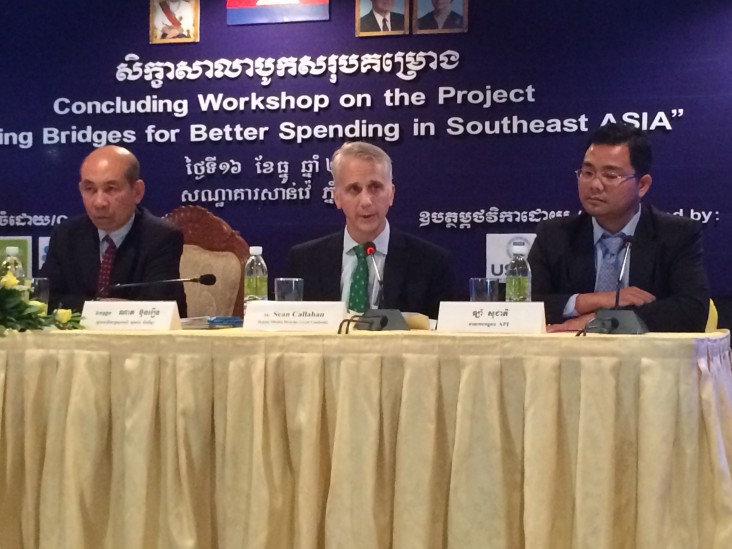
H.E. Nath Bunroeun, Secretary of State of Ministry of Education, Youth and Sport
Mr. San Chey, ASNA-East Asia Pacific
Ladies and Gentlemen
On behalf of the American people, thank you for allowing me to make brief remarks. A fundamental principle in democracy is that citizens have the right to demand accountability and that the government at all levels from the commune council to the national level including the Ministry of Education have an obligation to be accountable. Each and every appointed and elected official and civil servants are accountable for their conduct and performance.
Education is one of the key preconditions for development. A heavy historical burden has left huge gaps in the educational capacities of the Cambodian population but also in the educational system itself. The low quality of education services and corruptions including bribe and cheating are among crucial obstacles to the improvement of education in Cambodia. If there is any place to promote social accountability in Cambodia, it is in education such that social accountability could and should be found within the education sector.
It is with education and the future of Cambodia and future leaders of Cambodia that each parent, commune leader, businessperson and government officials play an important role. Each of them need to demand and provide accountability, responsiveness, transparency and results from the teachers, the principals, the bureaucrats and even the students and parents themselves.
Each of these actors must associate with each other to advance their common interests and even their individual needs and focus.
Today, the workshop will discuss tools and approaches that will provide a better understanding and evidence based approach on the spending and budget flows for education whether for salaries, testing, textbooks or teacher training. However I ask that while determining what tactics work today, please also focus on what simple and efficient strategies that both the government, the communities and individuals can agree to and implement that promote effective use of resources, encourage civic engagement, and ensure better performance and responsiveness of teachers, administrators and even students themselves.
In conclusion, I ask that these tools and discussions keep focused on the best interests of the students rather than simply on funding, government bureaucracy or demands of individuals whether they are the communities, parents, teachers or administrators.
Related Speeches
- Remarks by Polly Dunford, Mission Director, USAID Cambodia, Launch Event of Feed the Future Cambodia Harvest II
- Remarks by Christina Lau, Deputy Director, Office of Public Health and Education, USAID/Cambodia, Opening Ceremony of the Kick-Off Workshop for “One Health Workforce”
- Remarks by Veena Reddy, Deputy Mission Director, USAID Cambodia, EPIC Showcase







Comment
Make a general inquiry or suggest an improvement.